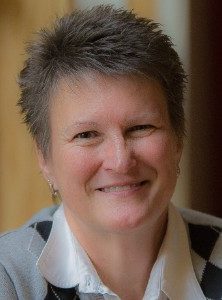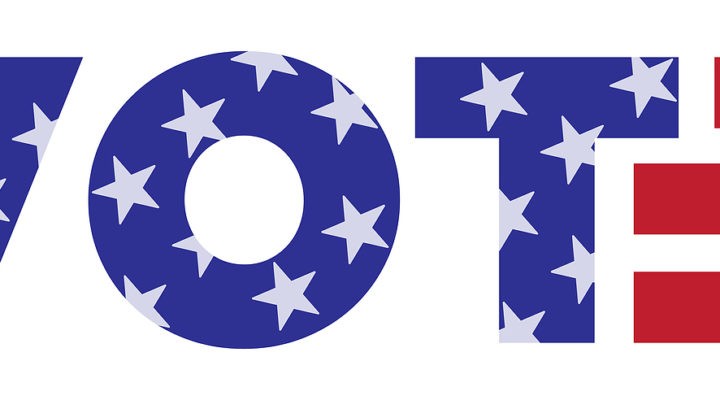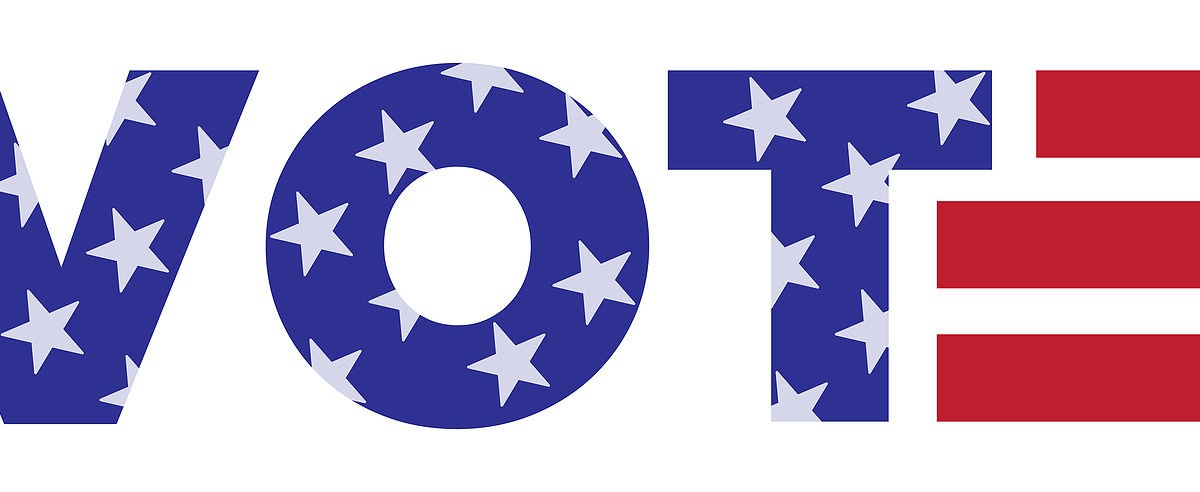Donald Trump has spent the past several months attacking vote-by-mail, going so far as to encourage North Carolina voters to vote twice (by mail and at the polls — which is illegal). Nonetheless, white evangelical support for Trump remains high, even as Republicans work to disenfranchise likely Democratic voters.
Trump’s Baptist supporters who accept (and perhaps even share on social media) his false statements about vote-by-mail are by no means the first Baptists to be astoundingly hypocritical about democracy and the right to vote. Yet Baptists, of all people, should be working to enfranchise voters and ensure wide voter participation.

Susan Shaw
After all, Baptists profess belief in the priesthood of the believer and organize churches democratically, with each member having a vote on matters of church governance. Baptist theologian Bill Hendricks made this argument in 1984. He reasoned that the doctrine of the priesthood of the believer demands a democratic pattern both in the church and in the government. He noted that if Americans in general and Baptists in particular took this doctrine seriously, they would work so that more people had the opportunity to vote. He asserted:
It is a surprising thing to hear a voice raised on behalf of radical democracy. Yet it should not be an unexpected thing from a Baptist theologian. It is recognized that radical democracies which grant to all equal opportunities are grossly inefficient and very difficult to muster and maintain. Nevertheless, it seems to me that, if we are to talk responsibly about moving from the Bible to the ballot box, we have to return to a wider understanding and practice of the priesthood of all believers and of the rights of each individual within the democracy.
Yet we see too many Baptists among Trump’s evangelical supporters all too willing to accept Trump’s attempts to discourage voter participation by raising the specter of voter fraud.
Still, this is not the first generation of Baptists to suppress the vote, in U.S. elections and the church.
Baptists in England allowed women to vote on church matters from the beginning. I asked the Baptist Union of Great Britain about this. A historian there told me: “Women have always been church members. They signed the church covenants (or made their mark) and they were allowed to vote as church members on all of the things you have mentioned (matters of church discipline, calling of ministers and church leaders and accepting the testimony of people applying for membership). I can’t think of anything that they would not have been allowed to vote on.”
“The Southern Baptist Convention disallowed women as messengers and even had a man give the annual meeting’s report for Woman’s Missionary Union.”
On this side of the pond, however, Southern Baptists did not allow women equal participation in church decisions, and the Southern Baptist Convention disallowed women as messengers and even had a man give the annual meeting’s report for Woman’s Missionary Union. Enslaved Black members of Baptist churches also were denied a voice in governance. After enslaved people were freed, Baptist churches in the South chose segregation over Black participation in church governance. An 1867 article in the Biblical Recorder noted, “If our original code of discipline toward our brethren of African descent was right, then emancipation from slavery has not made it wrong.”
Since the SBC formed over the issue of slavery, Southern Baptists were not keen on Black suffrage. For example, Virginia Baptists claimed that Black men were unqualified for franchise and that Black suffrage was an attempt to force “social equality.” In 1901, Virginia Baptists’ Religious Herald argued that Black men should be disenfranchised.
In 1905 the Wingate school in North Carolina sponsored a debate: “Should the 15th Amendment to the Constitution of the United States be repealed?” The debate focused almost entirely on Black suffrage.
The affirmative side argued the amendment had only been passed to allow Black men to dominate whites in the South; that Black men were “unfit morally and mentally to vote”; that Black men were not true men; that Black men do not appreciate the vote and will sell their votes; that based on the South’s experience, Black men should forever be disenfranchised. While the opposing side argued that Black men as citizens and tax payers should have the right to vote, the Baptist Messenger reported that the affirmative won.
Many in the denomination also opposed women’s suffrage. While some argued that suffrage would enfranchise Black women and reinfranchise Black men, more argued women voting would destroy white Southern women’s femininity and domesticity.
J.W. Porter, editor of the Kentucky Baptist newspaper, Western Recorder, wrote in 1916 that the National Suffrage Association originated “out of the brain of a semi-masculine Minerva” and “its ultimate ideal is to de-womanize the woman and make of her a female man.” He added, “The feminine demons, knowingly or otherwise, are pointing womankind to the path that leads to harlotry and to hell.”
One Texas Baptist man in 1913 wrote that voting and politics were “out of harmony with sweet, modest, home-loving female nature” and added that women’s involvement in voting might take them away from their domestic duties and tempt them to talk too much.
A Kentucky pastor in 1912 wrote, “How in striking contrast is the loud unwomanly clamor for recognition by the twentieth-century woman, demanding an evanescent crumb of comfort at the great cost of unsexing herself while apparently oblivious to the Divine benefactor.”
During the Civil Rights period, many Baptist segregationists joined in voter suppression tactics in the South. During Eugene Talmadge’s 1946 campaign for governor of Georgia, his supporters purged Black people from voter rolls. When the lone Black voter in Taylor County was shot to death and two Black women and two Black men were lynched in Walton County, the segregationist editor of The Christian Index denied that there was a connection between Talmadge’s racially charged white supremacist campaign and the lynching.
“In 2020, this legacy of voter suppression continues, even among Baptist folk who accept one of Trump’s most ludicrous lies — that vote-by-mail can’t be trusted.”
Now, in 2020, this legacy of voter suppression continues, even among Baptist folk who accept one of Trump’s most ludicrous lies — that vote-by-mail can’t be trusted.
I live in Oregon, where we have been voting only by mail for two decades.
In 1998, Oregonians overwhelmingly voted to switch to vote-by-mail for primary and general elections, and in 2000 we became the first state in the country to vote in a presidential election by mail-in voting. That year, we had a 79% voter turnout. For the 2016 presidential election, we had around 80% voter turnout. Compare this with an around 60% turnout nationally.
In Oregon, we receive our ballots two to three weeks before the election. We also receive a voter’s guide from the state. It has information about candidates and ballot initiatives, so we can educate ourselves at the breakfast table over a nice cup of coffee before marking our ballots, putting them into a security envelope, putting that envelope into the mailing envelope, and signing the back. That signature is checked against our signature on either a voter registration card or driver’s license. If the signatures don’t match, the clerk’s office mails a letter to the voter to sort it out.
We can also check online to make sure our ballots have been counted. In 2019, the governor signed a law adding prepaid postage to ballots. If we don’t want to mail our ballots, we can drop them off at one of the many ballot boxes conveniently located all over the state. And, just to make it even easier for everyone to be registered to vote, Oregon enacted “Motor Voter” registration in 2016. Now, when folks interact with the DMV, they are automatically registered to vote.
“While Oregon’s vote-by-mail has increased voter participation, it has not led to voter fraud.”
The results are conclusive: While Oregon’s vote-by-mail has increased voter participation, it has not led to voter fraud. In 2016, out of more than 2 million votes cast in Oregon, 56 cases of suspected fraud were forwarded to the Oregon Department of Justice by the Oregon Secretary of State’s office. Ten people were convicted of voter fraud.
These were almost all cases of voting in two states — because voters did not remember casting ballots in both states. For example, a college student registered to vote on her campus in Colorado and received a Colorado ballot. Her parents also sent her the Oregon ballot that came to their home. She didn’t remember filling them both out. She paid a $225 fine and canceled her Colorado voter registration.
The conservative Heritage Foundation could only find 15 cases of voter fraud in Oregon from 2000 to 2019. Nationally, the foundation found only 143 cases of fraud using mail-in ballots over those 20 years. That’s 0.00006% of the total votes cast across that timespan.
If Baptists really do believe in the priesthood of the believer, they should be among the most outspoken advocates for enfranchising voters in every way possible. As people who claim to seek truth, they should refuse the lie that vote-by-mail leads to voter fraud.
While Baptists have not always acted in consonance with this basic Baptist belief, redemption is always possible. At this moment when the stakes are high, Baptists, of all people, should work tirelessly to ensure one person, one vote.
Thanks to Taffey Hall, Doug Weaver and Stephen Copson for assistance with research for this essay.
Susan M. Shaw is professor of women, gender and sexuality studies at Oregon State University in Corvallis, Ore. She is also an ordained Baptist minister and holds master of arts and Ph.D. degrees from Southern Baptist Theological Seminary. Her most recent book is Intersectional Theology: An Introductory Guide, co-authored with Grace Ji-Sun Kim.
Related articles:
This year’s tug of war over the Catholic vote and why it matters
Mormons and the 2020 presidential election: It’s complicated


